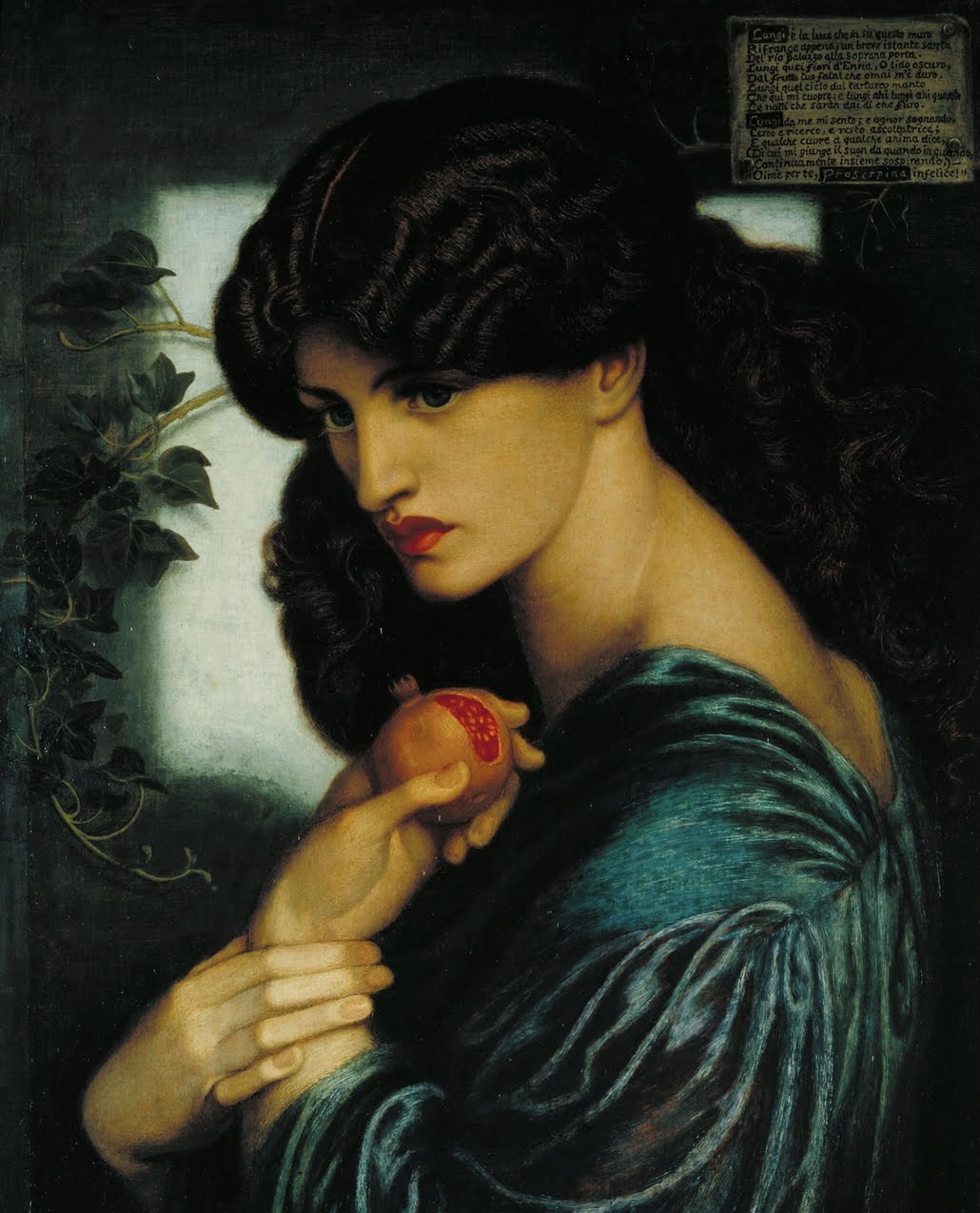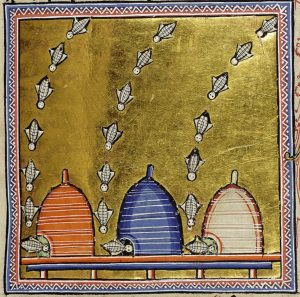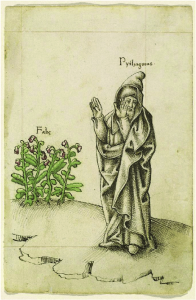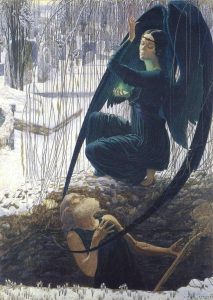Proserpina – Dante Gabriel Rossetti – 1874
In classical myth Proserpine was kidnapped by Pluto, the god of the underworld, to be his wife. Eating food from the underworld would usually cause a living person to stay there forever and Proserpine had mistakenly eaten six pomegranate seeds. However, Proserpina’s mother, Ceres: Goddess of agriculture & fertility, threatened to withhold growth and thus harvest & food from the world forever unless her daughter was returned.
Jupiter who had assisted in the kidnapping of his niece was forced to intercede between the two. Pluto agreed that since she had eaten only 6 seeds she need only reside in the Underworld for half the year and could return to the world above and her mother.
There are several versions of the tale and you may well know it better from Greek myth with the names Persephone, Demeter, Hades and Zeus. The pomegranate seeds feature in many of the versions although the number consumed often changes. Six is strangely the least mentioned number. The pomegranate is associated with death in Greek mythology as well as immortality. Here it also signifies captivity and marriage, accentuated by the ivy spray, a symbol of clinging memory.
In some religions to this day the pomegranate is a symbol of mediation between life and death as well as representing immortality and resurrection.
William Morris suggested this subject to Rossetti and Jane Morris modelled for him. Jane Morris was also a skilled embroiderer, self-taught in ancient embroidery techniques. It is said that although William Morris took credit for the designs at Morris and Co for commercial reasons, Jane, their daughters Jenny and May, all embroidered and supervised in the business.




